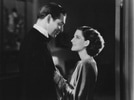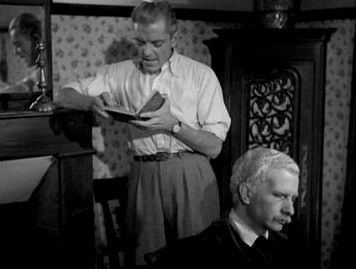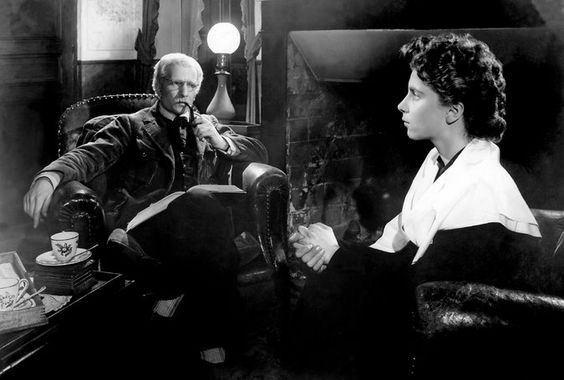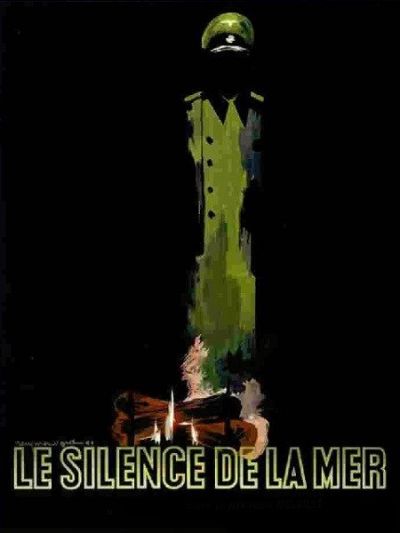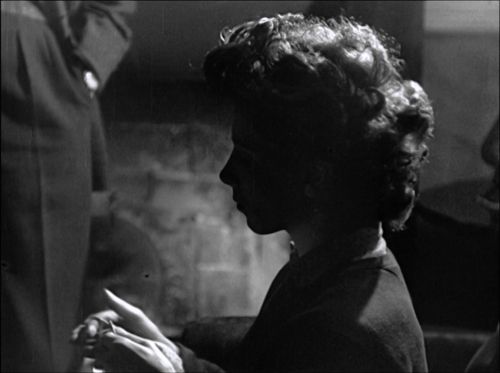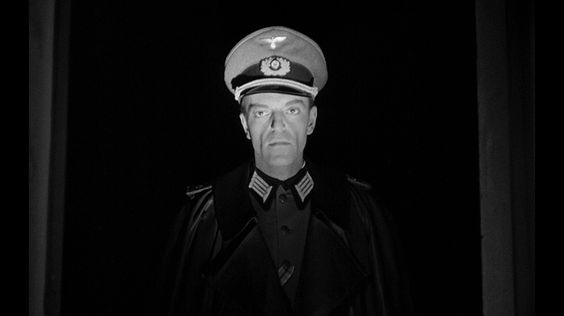Le Silence De La Mer (The Silence of the Sea) 1949 Jean-Pierre Melville
-Based on one of the first novels written & distributed by French Resistance fighters during the early part of the Nazi occupation of France, Le Silence De La Mer is the first feature film written & directed by French master Jean-Peirre Melville (Bob Le Flambeur, Le Samourai, & Le Cercle Rouge). Telling the story of a old man & his niece as they silently ignore a Nazi officer who has been billeted in their home, the film evolves over 6 months as the officer opens up about his love of France & his belief that German occupation will make both countries better. While his nightly monologues become more personal (the French never respond or acknowledge his presence), the uncle engages in deep voice over narration that explains his feelings, what he perceives to be those of his niece & his growing respect for the humanized & cultured Nazi. Only when the officer is exposed to his Nazi contemporaries, while on leave in occupied Paris, does he understand the horrors that are happening & what is to come. It openly questions German complicity in Nazi atrocities both in anticipation & in their execution & illustrates complex human emotions & feelings without direct dialogue. Shot in a mere 27 days, just 2 years after the war, Melville's debut film is a masterpiece of simple gestures & words belying complex & painful emotions.
-Based on one of the first novels written & distributed by French Resistance fighters during the early part of the Nazi occupation of France, Le Silence De La Mer is the first feature film written & directed by French master Jean-Peirre Melville (Bob Le Flambeur, Le Samourai, & Le Cercle Rouge). Telling the story of a old man & his niece as they silently ignore a Nazi officer who has been billeted in their home, the film evolves over 6 months as the officer opens up about his love of France & his belief that German occupation will make both countries better. While his nightly monologues become more personal (the French never respond or acknowledge his presence), the uncle engages in deep voice over narration that explains his feelings, what he perceives to be those of his niece & his growing respect for the humanized & cultured Nazi. Only when the officer is exposed to his Nazi contemporaries, while on leave in occupied Paris, does he understand the horrors that are happening & what is to come. It openly questions German complicity in Nazi atrocities both in anticipation & in their execution & illustrates complex human emotions & feelings without direct dialogue. Shot in a mere 27 days, just 2 years after the war, Melville's debut film is a masterpiece of simple gestures & words belying complex & painful emotions.
